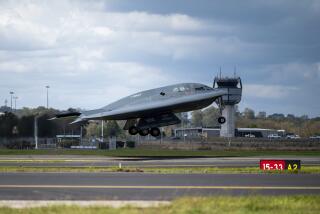U.S. warplanes target 116 oil trucks allegedly used by Islamic State in Syria
- Share via
Reporting from Washington — Aiming to choke off the funding that has helped make Islamic State the world’s wealthiest terrorist group, the U.S. military has stepped up efforts to eliminate the group’s illicit oil production and smuggling capabilities.
Four A-10 attack planes and two AC-130s gunships signaled the shift on Sunday when they attacked 116 fuel trucks parked near the eastern Syrian town of Abu Kamal, near the border with Iraq, according to the Pentagon.
The A-10s were deployed last month to Incirlik Air Base in Turkey, partly to reduce flying time to neighboring Syria. The attack - a mix of bombs and aerial guns - was launched as President Obama attended a G-20 summit in the Turkish city of Antalya that largely focused on the terrorist threat.
Until now, the U.S. military has bombed small oil production sites in Syria but has held back from attacking major oil and gas refineries and other large facilities to try to preserve the battered country’s economic infrastructure. Commanders also passed up bombing gas trucks to avoid potential civilian casualties.
NEWSLETTER: Get the day’s top headlines from Times Editor Davan Maharaj >>
The Pentagon said it dropped leaflets to drivers and civilians before the attack to warn them the parked trucks would be targeted.
The Pentagon said the airstrikes are part of Tidal Wave II, a renewed effort to cut off the black market oil sales that have helped funnel millions of dollars per month into the militants’ coffers.
The U.S. military estimates two-thirds of the group’s oil revenue comes from the Deir ez-Zor region in eastern Syria. The oil and gas are sold at a discount to traders and smugglers, who carry it across the porous border into Iraq.
“Our intent is to shut those oil facilities down completely,” Col. Steve Warren, spokesman for the U.S.-led military coalition in Baghdad, told reporters Friday at the Pentagon via teleconference.
While the U.S.-led coalition has bombed Islamic State oil facilities before, the strikes were mostly limited to small improvised stills that each produced only a few hundred barrels of gasoline a day.
Warren said those attacks failed to permanently eliminate the oil production, and commanders decided a new strategy was needed.
“What we learned is that the strikes that we were taking were against pieces of the oil system that were easily repaired or replaced,” he said.
The new bombing campaign has a broader target list that Warren said “will cause them to shut down for an extended period of time.”
The campaign, named after the Allies’ bombing of Nazi Germany’s oil industry in World War II, was planned before the terrorist attacks Friday night in Paris that left 129 people dead and hundreds wounded.
The stepped up bombing began on Oct. 21 when warplanes from the U.S.-led coalition pounded 26 targets on the Omar oil fields in eastern Syria. Subsequent raids targeted gas and oil separation plants in the Tanak oil field and nearby fields.
Follow @wjhenn for military and defense info.
ALSO
Obama fights back against critics of his Islamic State strategy
CIA director warns Islamic State has other terror attacks ‘in the pipeline’
Washington threatened as next target in video purportedly released by Islamic State
More to Read
Sign up for Essential California
The most important California stories and recommendations in your inbox every morning.
You may occasionally receive promotional content from the Los Angeles Times.











